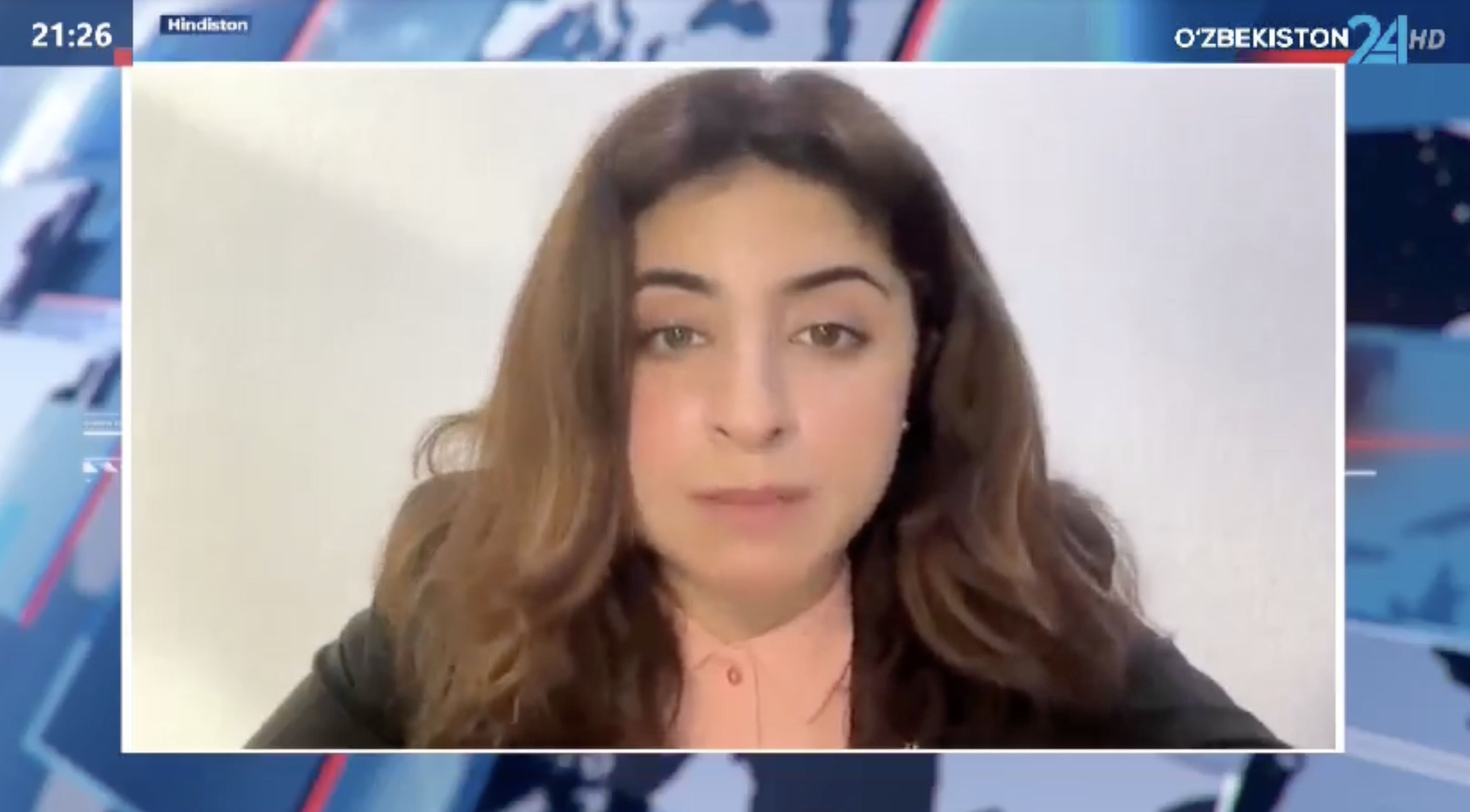Kamakshi Wason, Global Chief Operating Officer of the Tillotoma Foundation, recently appeared on national news channel Uzbekistan 24 to discuss Uzbekistan’s Draft Presidential Decree for the 2025 State Program. Part of the “Uzbekistan-2030 Strategy,” 2025’s program is dedicated to the “Year of Environmental Protection and Green Economy,” laying out transformative reforms across environmental, economic, healthcare, and foreign policy sectors.

Leading the Way in Environmental Protection
The draft program’s focus on environmental sustainability is headlined by the “One Million Green Families” movement, which promotes eco-friendly practices like daily walking, using green transportation, and reducing plastic consumption.
“This emphasis on environmental protection and transitioning to a green economy is particularly noteworthy,” Wason said. “Initiatives like these are practical and impactful steps that align with global efforts to combat climate change, a subject I am deeply passionate about.”
She also highlighted the potential for broader awareness campaigns. “Including initiatives to educate citizens on sustainable practices such as food waste reduction and water conservation could further strengthen the program’s objectives,” she suggested, emphasizing the importance of grassroots engagement.
Revolutionizing Healthcare
Healthcare modernization forms a critical part of the program, with proposals to introduce electronic prescription systems and reorganize medical institutions into multi-specialty clinics.
“These changes reflect a forward-thinking approach to enhancing public health services,” Wason explained. “Digitalization efforts like these are essential for improving efficiency, accessibility, and equity in healthcare delivery.”
Fostering Entrepreneurship and Green Business
The program also aims to boost entrepreneurship by reducing regulatory burdens and supporting sustainable business practices. Among the proposed measures are the abolition of unnecessary licensing processes and the creation of automated systems for state registration.
Wason praised the economic reforms, saying, “The focus on supporting entrepreneurship and reducing regulatory burdens is commendable. Establishing a fund to support green growth and introducing the status of ‘green entrepreneur’ will stimulate sustainable business practices, fostering economic development while ensuring environmental sustainability.”
Strengthening Foreign Policy and Global Partnerships
Uzbekistan’s foreign policy objectives under the program include over 40 initiatives to strengthen relations with neighboring countries, key global partners, and international organizations. Another major goal is to attract international brands to the country, boosting the economy and tourism.
“These initiatives underscore Uzbekistan’s dedication to regional stability and global cooperation,” Wason noted. “Bringing major international brands to Uzbekistan would be an excellent development for the economy and tourism, further enhancing the country’s global standing.”
A Model for Participatory Governance
Uzbekistan’s approach to involving the public in shaping the “Uzbekistan-2030 Strategy” earned particular praise from Wason.
“The practice of engaging the public in discussing the strategy sets a positive precedent for participatory governance,” she said. “This inclusive approach encourages diverse perspectives, ensuring that the program reflects the needs and aspirations of all stakeholders.”
Paving the Path to Progress
With its 2025 State Program, Uzbekistan is setting a course for sustainable development and modernization. From environmental protection to healthcare reform and economic growth, the program reflects a commitment to both progress and inclusivity.
“These initiatives are not just about policy changes—they represent a vision for a better future,” Wason concluded, underscoring the importance of collaboration and innovation in realizing Uzbekistan’s ambitious goals.
Comments (0)